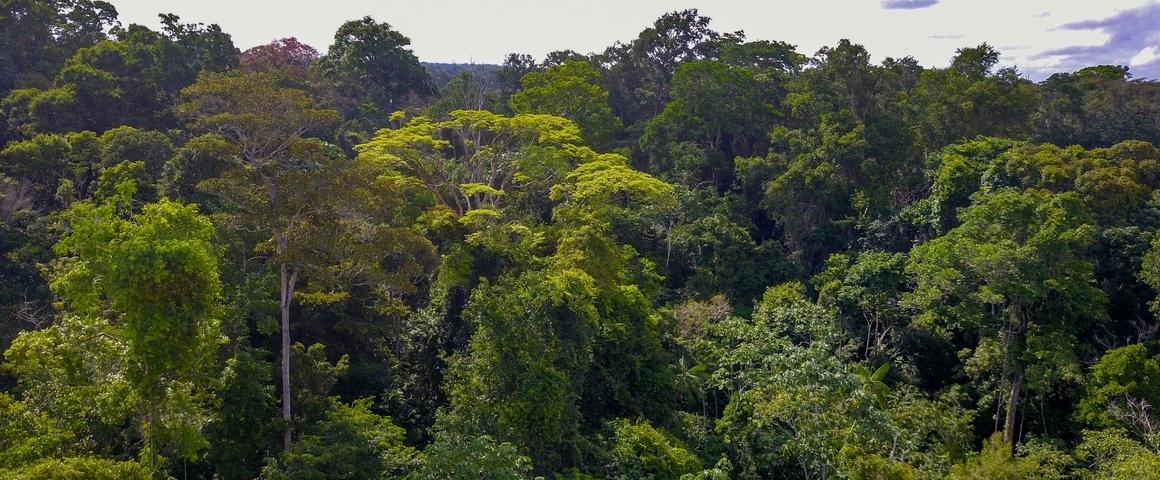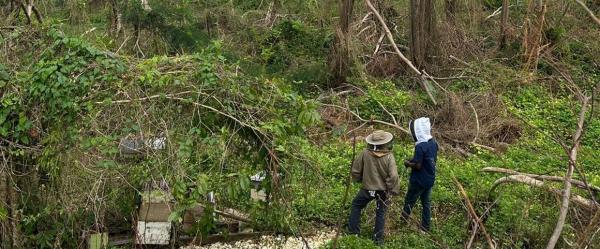Science at work 14 January 2026
- Home
- CIRAD news
- News
- French forest research changes track
Temperate and tropical forests are fighting the same battles

Primary forest in an indigenous reservation in the heart of the Brazilian Amazon © R. Poccard-Chapuis, CIRAD
FORESTT, for "Forests and global changes: socio-ecological systems in transition". This is the name of a new Priority Research Programme and Equipment (PEPR) aiming to federate French forest research. It is piloted by INRAE, in collaboration with CIRAD and CNRS, will run for eight years, and has a budget of 50 million euros.
"Forest research is still very split between the different disciplines concerned. It needs to move towards greater interdisciplinarity in order to tackle current issues, particularly in the light of climate change", says Plinio Sist, Head of CIRAD's Forests and Societies research unit. Along with Daniel Barthélémy, he is CIRAD Scientific Representative for PEPR FORESTT. Both researchers are convinced that their field of research needs to change.
"Forests are socio-ecosystems", says Daniel Barthélémy, plant biodiversity expert at CIRAD and Head of the University of Montpellier's "Agriculture, Environment, Biodiversity" centre. "They form direct and indirect links with several economic sectors, such as agriculture. They render vital environmental services. And in addition to those economic and ecological aspects, forests are highly symbolic for human societies. Citizens, nature conservation associations and forestry firms, for instance, will all see forests in different and sometimes conflicting ways."
French forest research has so far failed to address that complexity. This is the challenge set for PEPR FORESTT: to structure a national community of some 1250 researchers and build crosscutting approaches. The final aim is to build sustainable management methods capable of coping with the impact of climate change.
Strengthening the links between temperate and tropical forest management
With an average of 200 tree species per hectare, tropical forests are highly diverse ecosystems. In comparison, the figure for temperate forests is between three and fifteen. For Plinio Sist, that complexity in the tropics could inspire foresters in the global North: "The vast biodiversity of tropical forests is the mainstay of their resilience. These ecosystems contain a wealth of information on how we could fight climate change".
Conversely, tree replanting and varietal breeding programmes in temperate environments could set an example for forest landscape restoration projects in the global South. "Forging links and learning from each other and from past experience" are two of the advantages of this PEPR, he adds.
Moreover, some issues apply to both types of forest: in both North and South, very few species are logged. Temperate and tropical forests would benefit from the exploitation of new commercial species.
Joining forces to carry more weight in the EU and worldwide
Pooling of data and knowledge, long-term interdisciplinary collaboration and openness to the tropics... networking will give French forest research more weight on the global stage.
This is also a considerable advantage as regards the EU, which is currently stepping up measures against imported deforestation. "Tropical countries will shortly have to satisfy EU demands in terms of sustainable logging, for instance", Plinio Sist says. "A mediator will be required, notably to support certification of tropical products exported to European markets."



























